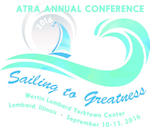Introduction to Music & Memory in a variety of settings
Session Description
Discover the science behind the intervention of utilizing autobiographical music outlined in the Music & Memory program. With the focus on person centered programming, APIED will be discussed on all levels of this modality. Overall benefits of the program will be explored within the needs of many differing population groups, including Cognitive Decline, Chronic conditions and impairments, intellectual impairments, and community support initiatives. Various best practices will be discussed within home care settings, Assisted living communities, DD- intensive care, skilled nursing environments, and end-of-life care. Benefits for the care environment and use of this program for clinical team building will also be discussed. Participants will have a sandbox moment of creating a musical journey that is specific and geared to themselves and experience and voluntarily share the benefits of Music & Memory from a personal level. Two case studies from the movie will be reviewed as it relates to TR.
Primary Contact for Submission
Robin Lombardo, CTRS,CDP, Music & Memory
Credentials - Please list your credentials as you would like for them to appear beside your name in the program.
MS,CTRS,CDP
